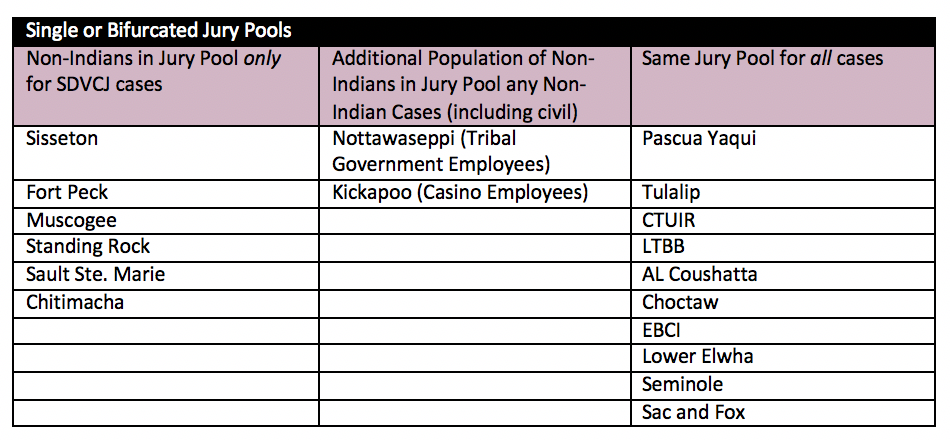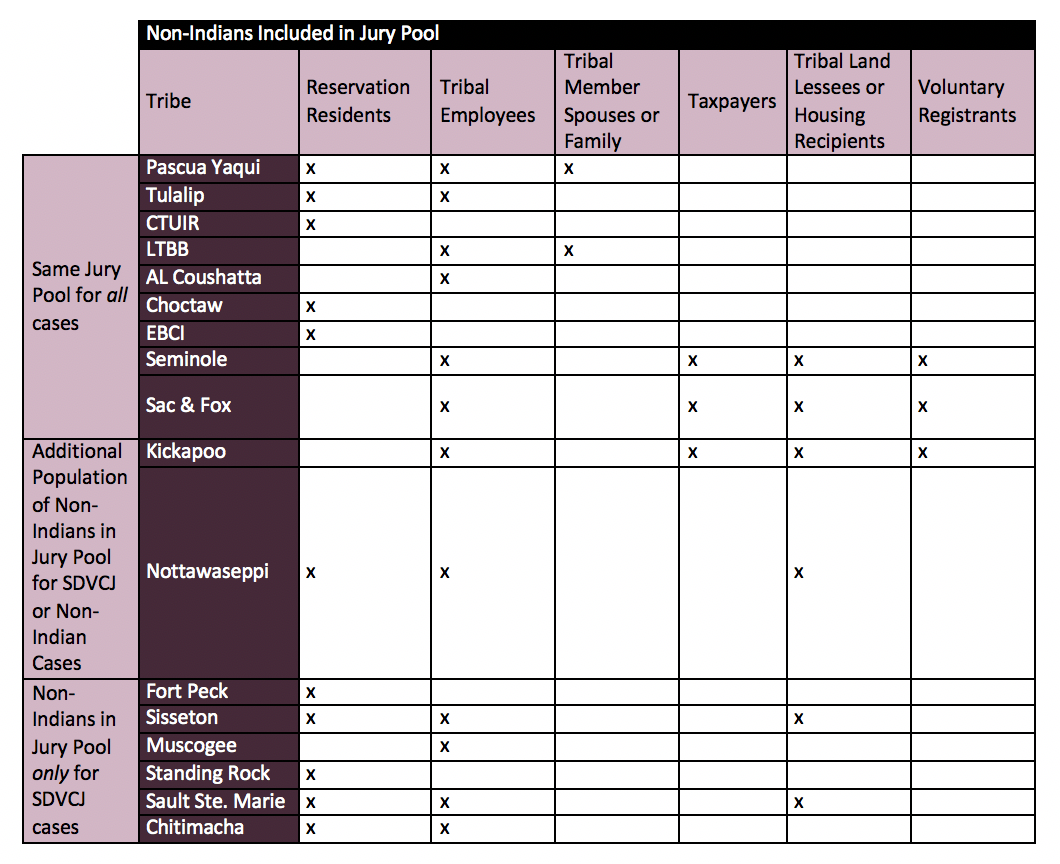Contrasting The First 18 Implementing Tribes on Jury Pool Selection
In order to exercise SDVCJ, a tribe must ensure that non-Indian defendants have the right to a trial by an impartial jury that is drawn from sources that—
1.1 “reflect a fair cross section of the community”; and
1.2 “do not systematically exclude any distinctive group in the community, including non- Indians.”
Some tribes included non-Indians in their jury pools prior to the passage of VAWA 2013. For the other tribes, implementation of VAWA 2013 required them to change their tribal codes and procedures to include non-Indians in their jury pools for SDVCJ trials.
In redesigning jury pools, there are two major points on which tribes differ. First, tribes differ on when they choose to include non-Indians in their jury pools. Some tribes chose to include non-Indians in their jury pool for all cases, while others created a bifurcated system. The tribes using bifurcated systems include non-Indians, or certain larger populations of non-Indians, only for SDVCJ cases. Second, tribes differ in how they determine what constitutes their “community” and which categories of non-Indians they include as eligible jurors.
For some tribes, including non-Indians for the first time presented a logistical challenge, since a list of non-Indian tribal residents may be difficult to obtain. The Fort Peck Tribes were able to obtain a list through the 15th Judicial District of Montana, which luckily comprises 98 percent of the Reservation. However, for some tribes, including non-Indian employees or tribal housing residents was the more efficient course of action given the availability of that information. Including non-Indian employees often required tribes to rewrite provisions of their corporation’s employee handbooks or revisit tribal employee leave policies.
Tribes who are thinking about implementing SDVCJ have routinely asked how they can ensure non-Indians comply with a jury summons given their limited authority over non-Indians. A number of best practices have been shared with the tribes by the National Center for State Courts. In practice, this has not been a problem. Tribes who have called a SDVCJ jury have anecdotally reported that non-Indians report for jury duty at higher rates than Indians. In one recent jury trial at Fort Peck, the entire jury was composed of non-Indians.
For more information about Defedent's Rights click here.


For more details, see pp. 67-68 of the Five Year Report.
